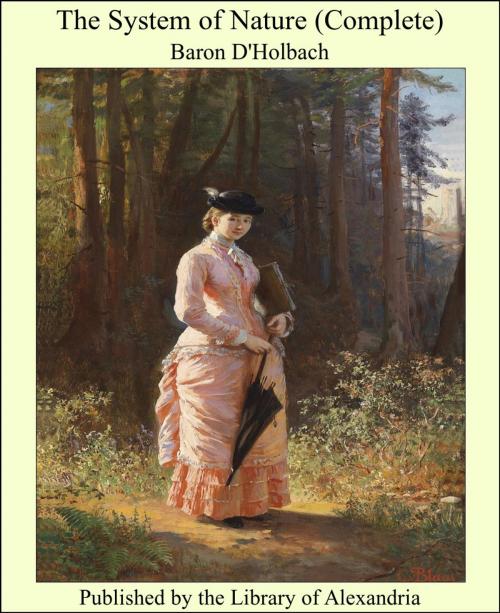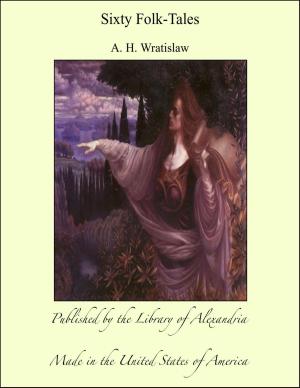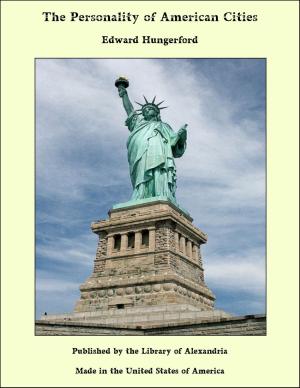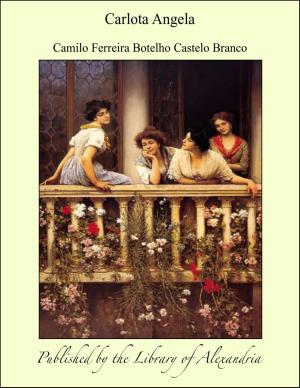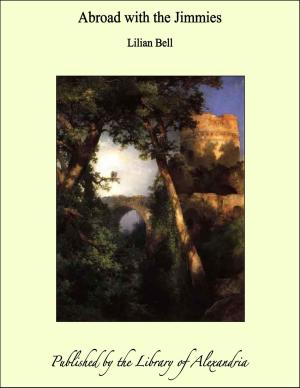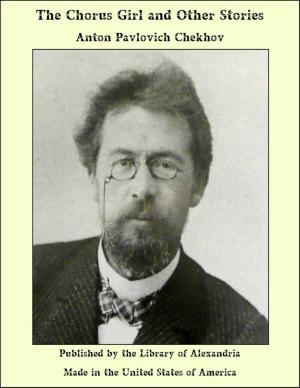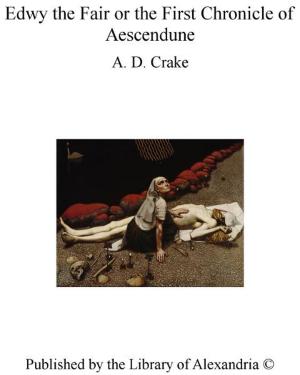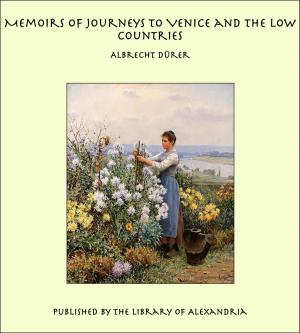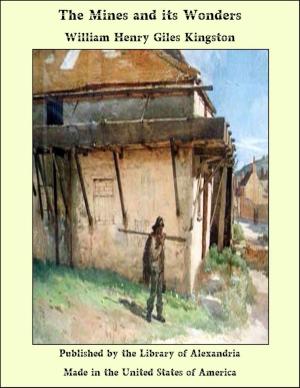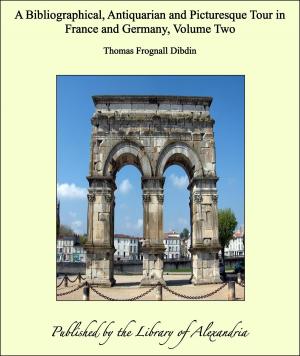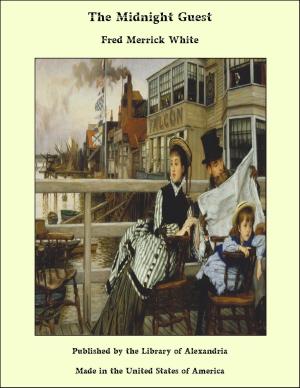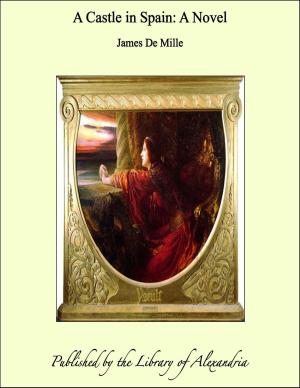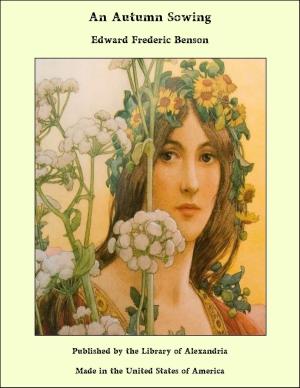The System of Nature (Complete)
Nonfiction, Religion & Spirituality, New Age, History, Fiction & Literature| Author: | Baron D'Holbach | ISBN: | 9781465500533 |
| Publisher: | Library of Alexandria | Publication: | March 8, 2015 |
| Imprint: | Language: | English |
| Author: | Baron D'Holbach |
| ISBN: | 9781465500533 |
| Publisher: | Library of Alexandria |
| Publication: | March 8, 2015 |
| Imprint: | |
| Language: | English |
Paul Henri Thiery, Baron d’Holbach (1723-1789), was the center of the radical wing of the philosophes. He was friend, host, and patron to a wide circle that included Diderot, D’Alembert, Helvetius, and Hume. Holbach wrote, translated, edited, and issued a stream of books and pamphlets, often under Other names, that has made him the despair of bibliographers but has connected his name, by innuendo, gossip, and association, with most of what was written in defense of atheistic materialism in late eighteenth-century France. Holbach is best known for The System of Nature (1770) and deservedly, since it is a clear and reasonably systematic exposition of his main ideas. His initial position determines all the rest of his argument. “There is not, there can be nothing out of that Nature which includes all beings.” Conceiving of nature as strictly limited to matter and motion, both of which have always existed, he flatly denies that there is any such thing as spirit or a supernatural. Mythology began, Holbach claims, when men were still in a state of nature and at the point when wise, strong, and for the most part benign men were arising as leaders and lawgivers. These leaders “formed discourses by which they spoke to the imaginations of their willing auditors,” using the medium of poetry, because it “seem[ed] best adapted to strike the mind.” Through poetry, then, and by means of “its images, its fictions, its numbers, its rhyme, its harmony… the entire of nature, as well as all its parts, was personified, by its beautiful allegories.” Thus mythology is given an essentially political origin. These early poets are literally legislators of mankind. “The first institutors of nations, and their immediate successors in authority, only spoke to the people by fables, allegories, enigmas, of which they reserved to themselves the right of giving an explanation.” Holbach is rather condescending about the process, but since mythology is a representation of nature itself, he is far more tolerant of mythology than he is of the next step. “Natural philosophers and poets were transformed by leisure into metaphysicians and theologians,” and at this point a fatal error was introduced: the theologians made a distinction between the power of nature and nature itself, separated the two, made the power of nature prior to nature, and called it God. Thus man was left with an abstract and chimerical being on one side and a despoiled inert nature, destitute of power, on the Other. In Holbach’s critique the point at which theology split off from mythology marks the moment of nature’s alienation from itself and paves the way for man’s alienation from nature. Holbach is thus significant for Romantic interest in myth in two ways. First, he provides a clear statement of what can be loosely called the antimythic position, that rationalist condescension and derogation of all myth and all religion that was never far from the surface during the Romantic era. Holbach was and is a reminder that the Romantic affirmation of myth was never easy, uncritical, or unopposed. Any new endorsement of myth had to be made in the teeth of Holbach and the Other skeptics. The very vigor of the Holbachian critique of myth impelled the Romantics to think more deeply and defend more carefully any new claim for myth. Secondly, although Holbach’s argument generally drove against myth and religion both, he did make an important, indeed a saving distinction between mythology and theology. Mythology is the more or less harmless personification of the power in and of nature; theology concerns itself with what for Holbach was the nonexistent power beyond or behind nature. By exploiting this distinction it would become possible for a Shelley, for example, to take a strong antitheological— even an anti-Christian—position without having to abandon myth. Holbach was one of William Godwin’s major sources for his ideas about political justice, and Shelley, who discussed Holbach with Godwin, quotes extensively from The System of Nature in Queen Mab. Furthermore, Volney’s Ruins, another important book for Shelley, is directly descended from The System of Nature. On the Other side, Holbach was a standing challenge to such writers as Coleridge and Goethe and was reprinted and retranslated extensively in America, where his work was well known to the rationalist circle around Jefferson and Barlow
Paul Henri Thiery, Baron d’Holbach (1723-1789), was the center of the radical wing of the philosophes. He was friend, host, and patron to a wide circle that included Diderot, D’Alembert, Helvetius, and Hume. Holbach wrote, translated, edited, and issued a stream of books and pamphlets, often under Other names, that has made him the despair of bibliographers but has connected his name, by innuendo, gossip, and association, with most of what was written in defense of atheistic materialism in late eighteenth-century France. Holbach is best known for The System of Nature (1770) and deservedly, since it is a clear and reasonably systematic exposition of his main ideas. His initial position determines all the rest of his argument. “There is not, there can be nothing out of that Nature which includes all beings.” Conceiving of nature as strictly limited to matter and motion, both of which have always existed, he flatly denies that there is any such thing as spirit or a supernatural. Mythology began, Holbach claims, when men were still in a state of nature and at the point when wise, strong, and for the most part benign men were arising as leaders and lawgivers. These leaders “formed discourses by which they spoke to the imaginations of their willing auditors,” using the medium of poetry, because it “seem[ed] best adapted to strike the mind.” Through poetry, then, and by means of “its images, its fictions, its numbers, its rhyme, its harmony… the entire of nature, as well as all its parts, was personified, by its beautiful allegories.” Thus mythology is given an essentially political origin. These early poets are literally legislators of mankind. “The first institutors of nations, and their immediate successors in authority, only spoke to the people by fables, allegories, enigmas, of which they reserved to themselves the right of giving an explanation.” Holbach is rather condescending about the process, but since mythology is a representation of nature itself, he is far more tolerant of mythology than he is of the next step. “Natural philosophers and poets were transformed by leisure into metaphysicians and theologians,” and at this point a fatal error was introduced: the theologians made a distinction between the power of nature and nature itself, separated the two, made the power of nature prior to nature, and called it God. Thus man was left with an abstract and chimerical being on one side and a despoiled inert nature, destitute of power, on the Other. In Holbach’s critique the point at which theology split off from mythology marks the moment of nature’s alienation from itself and paves the way for man’s alienation from nature. Holbach is thus significant for Romantic interest in myth in two ways. First, he provides a clear statement of what can be loosely called the antimythic position, that rationalist condescension and derogation of all myth and all religion that was never far from the surface during the Romantic era. Holbach was and is a reminder that the Romantic affirmation of myth was never easy, uncritical, or unopposed. Any new endorsement of myth had to be made in the teeth of Holbach and the Other skeptics. The very vigor of the Holbachian critique of myth impelled the Romantics to think more deeply and defend more carefully any new claim for myth. Secondly, although Holbach’s argument generally drove against myth and religion both, he did make an important, indeed a saving distinction between mythology and theology. Mythology is the more or less harmless personification of the power in and of nature; theology concerns itself with what for Holbach was the nonexistent power beyond or behind nature. By exploiting this distinction it would become possible for a Shelley, for example, to take a strong antitheological— even an anti-Christian—position without having to abandon myth. Holbach was one of William Godwin’s major sources for his ideas about political justice, and Shelley, who discussed Holbach with Godwin, quotes extensively from The System of Nature in Queen Mab. Furthermore, Volney’s Ruins, another important book for Shelley, is directly descended from The System of Nature. On the Other side, Holbach was a standing challenge to such writers as Coleridge and Goethe and was reprinted and retranslated extensively in America, where his work was well known to the rationalist circle around Jefferson and Barlow
